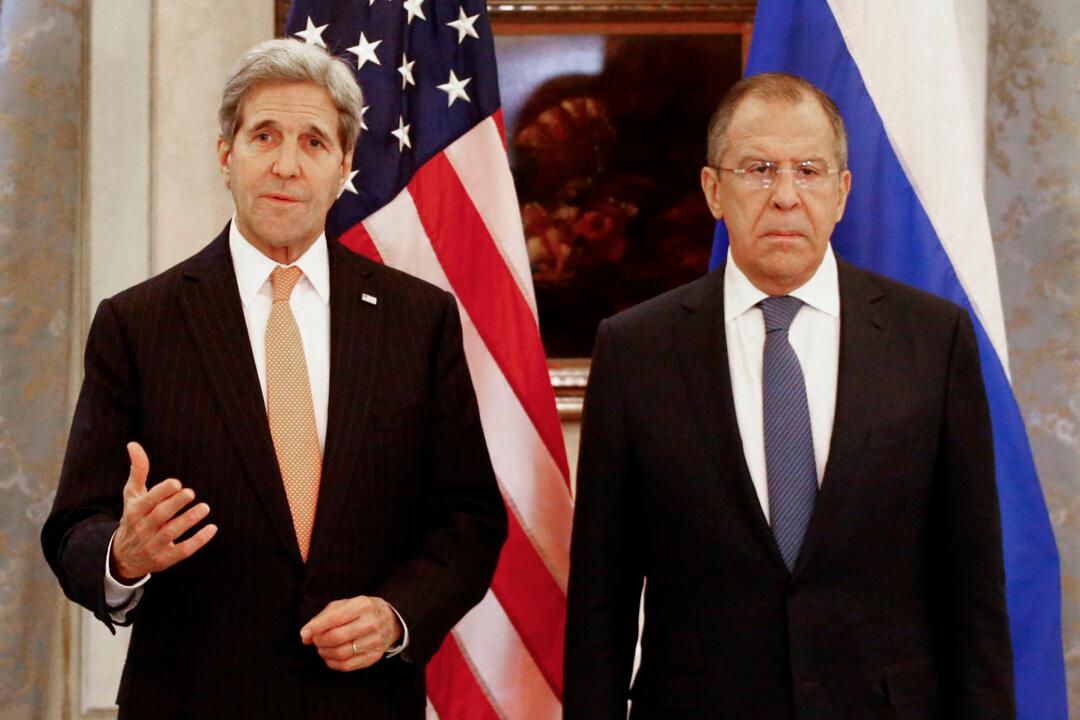VIENNA—High-level talks on the future of Syria have produced an agreement to seek meetings between the opposition and the government of President Bashar Assad by year’s end, Germany’s foreign minister said Saturday.
Frank-Walter Steinmeier also said that there will be efforts to create a new constitution for the war-torn country and attempts to create a transitional government within 18 months.
Steinmeier spoke at the end of a daylong meeting of nearly 20 countries represented by foreign ministers and their deputies seeking to end Syria’s war. It was overshadowed by the terrorist shootings and bombings in Paris that killed more than 120 people.
Syria as a breeding ground for terrorism moved Saturday to the foreground of a meeting of foreign ministers on the war in that country, with participants linking the devastating shooting and bombing attacks in Paris to the Mideast turmoil and the opportunities it gives for terror.
U.S. Secretary of State John Kerry and Russian Foreign Minister Sergey Lavrov both condemned the attacks as they began meetings with senior representatives from Iran, Saudi Arabia and other countries with strongly conflicting views on how to end the more than four-year war. Key differences include what, if any role Syrian President Bashar Assad should play in any transition government and which groups fighting him should be grouped as terrorists.
Those differences appeared to be put aside at least temporarily as the meeting started.
“These kinds of attacks are the most vile, horrendous, outrageous, unacceptable acts on the planet,” said Kerry, after speaking with Lavrov and shortly before the main meeting convened at a luxurious Vienna hotel. “And the one thing we could say to those people is that what they do in this is stiffen our resolve, all of us, to fight back, to hold people accountable, and to stand up for rule of law, which is exactly what we are here to do.
“And if they’ve done anything, they’ve encouraged us today to do even harder work to make progress and to help resolve the crises that we face,” Kerry said.





